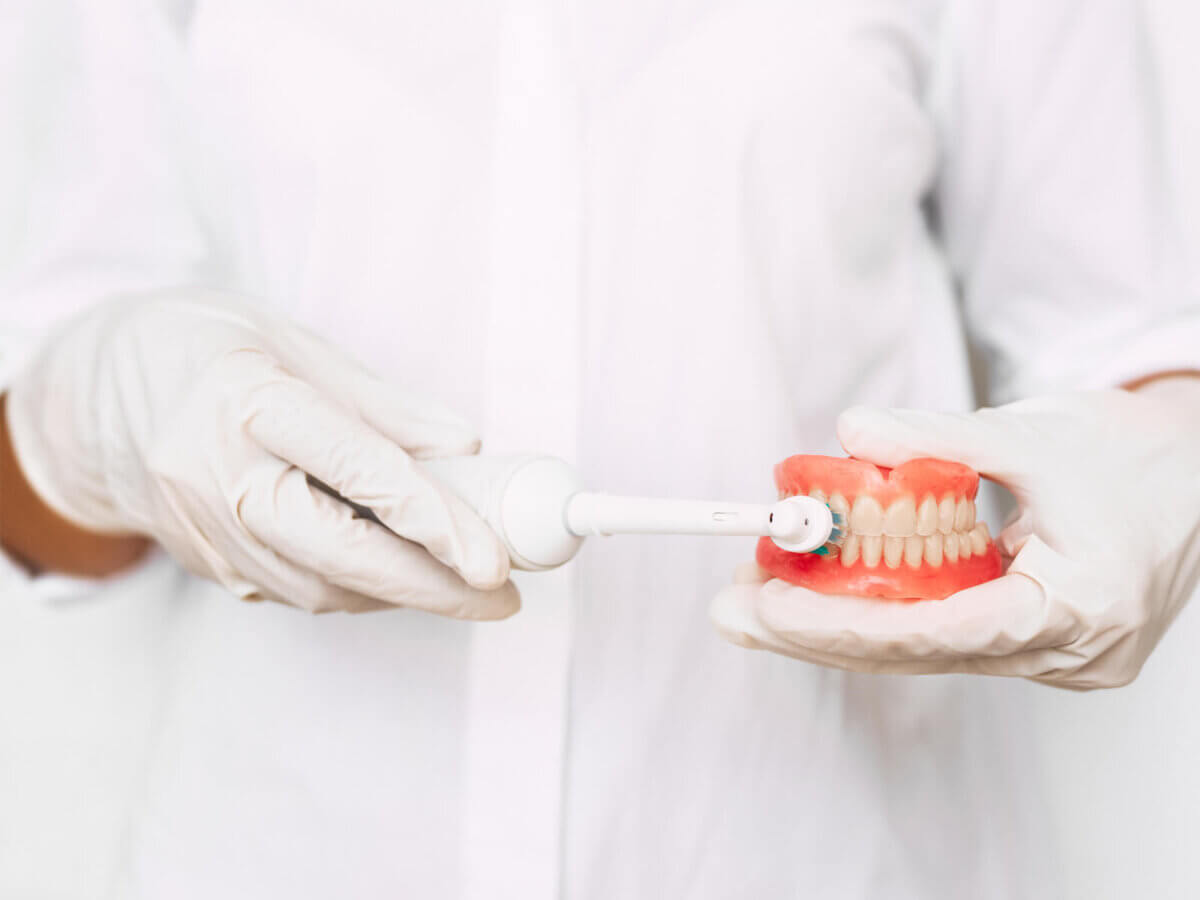Blog
Dental hygiene tips for healthy teeth & gums

Proper Oral Hygiene Habits To Extend The Lifespan of Your Veneers
Dental veneers are a popular cosmetic dental treatment that can enhance your smile by addressing issues such as discoloration, chips, or misalignment. While veneers are durable and robust, maintaining excellent oral hygiene is crucial to extend their lifespan and keep your smile radiant. This blog explores effective oral hygiene practices to maximize the benefits of your veneers.
-
Regular and Gentle Brushing:
Brushing is vital for both natural teeth and veneers. Use a soft-bristled toothbrush and non-abrasive toothpaste to prevent damage to the veneer surface. Brush twice daily, ensuring the veneers are thoroughly cleaned to remove plaque and prevent staining. Gentle yet thorough brushing is key to preserving your veneers’ integrity.
-
Daily Flossing:
Flossing is essential to clean between teeth and along the gumline, even with veneers. Regular flossing prevents plaque buildup, protecting against gum disease and maintaining the health of the tissues supporting your veneers. Floss gently to avoid dislodging or damaging the veneers.
-
Non-Abrasive, Alcohol-Free Mouthwash:
Incorporating a mouthwash into your routine helps maintain veneer cleanliness and overall oral health. Choose a non-abrasive, alcohol-free mouthwash to protect the veneer surface and the bonding agent securing the veneers to your teeth.
-
Limit Stain-Causing Foods and Beverages:
Although veneers resist stains, it’s advisable to minimize the consumption of stain-inducing items like coffee, red wine, berries, and certain sauces, which can affect veneer color over time.
-
Wear a Nightguard for Bruxism:
Teeth grinding can significantly reduce veneer lifespan. If you grind your teeth, especially during sleep, consider a nightguard. This protective barrier minimizes wear and potential damage to your veneers.
-
Routine Dental Check-ups:
Regular dental visits are crucial for monitoring veneer condition and addressing any issues promptly. Your dentist can inspect for wear or damage and ensure overall oral health. Professional cleanings help maintain veneer condition.
-
Promptly Address Veneer Issues:
If you notice changes in your veneers, such as chips, cracks, or discoloration, seek treatment immediately. Delaying can lead to more severe problems and shorten the veneer lifespan.
-
Maintain a Balanced Diet:
A nutritious diet benefits overall health and veneer longevity. Consult your dentist at the first sign of issues for appropriate solutions.
-
Avoid Using Teeth as Tools:
Using your teeth for tasks other than eating, like opening packages, can damage veneers. Avoid such practices to prevent accidental damage.
-
Stay Hydrated:
Adequate water intake benefits overall health and veneer maintenance. Water helps remove debris and bacteria, reducing plaque on veneers. Hydration also promotes saliva production, which is essential for a healthy oral environment.
Conclusion:
Dental veneers are a valuable investment in your smile’s aesthetics. By incorporating these oral hygiene practices into your daily routine and being mindful of your oral health, you can enjoy the benefits of your veneers for many years.


